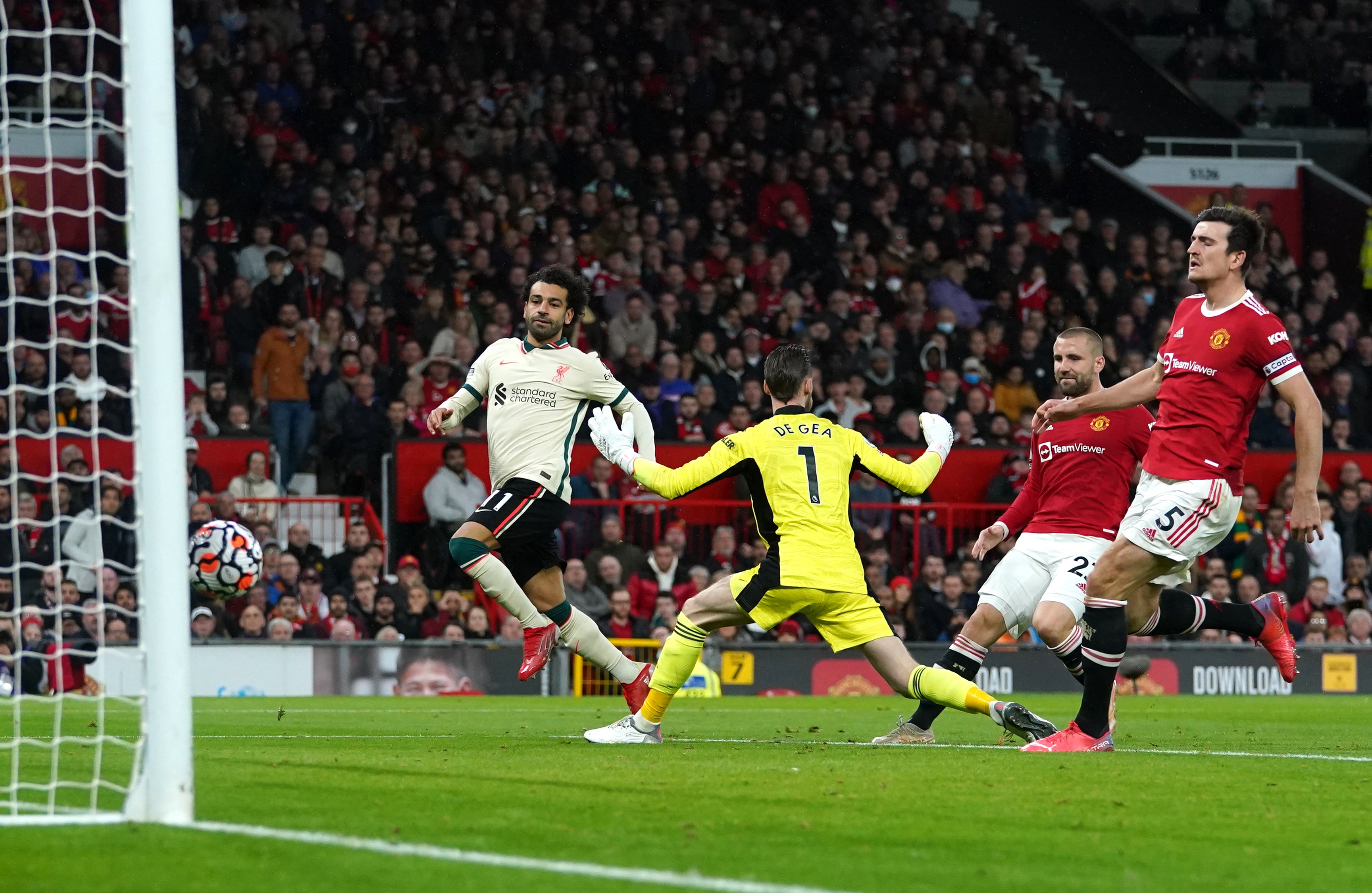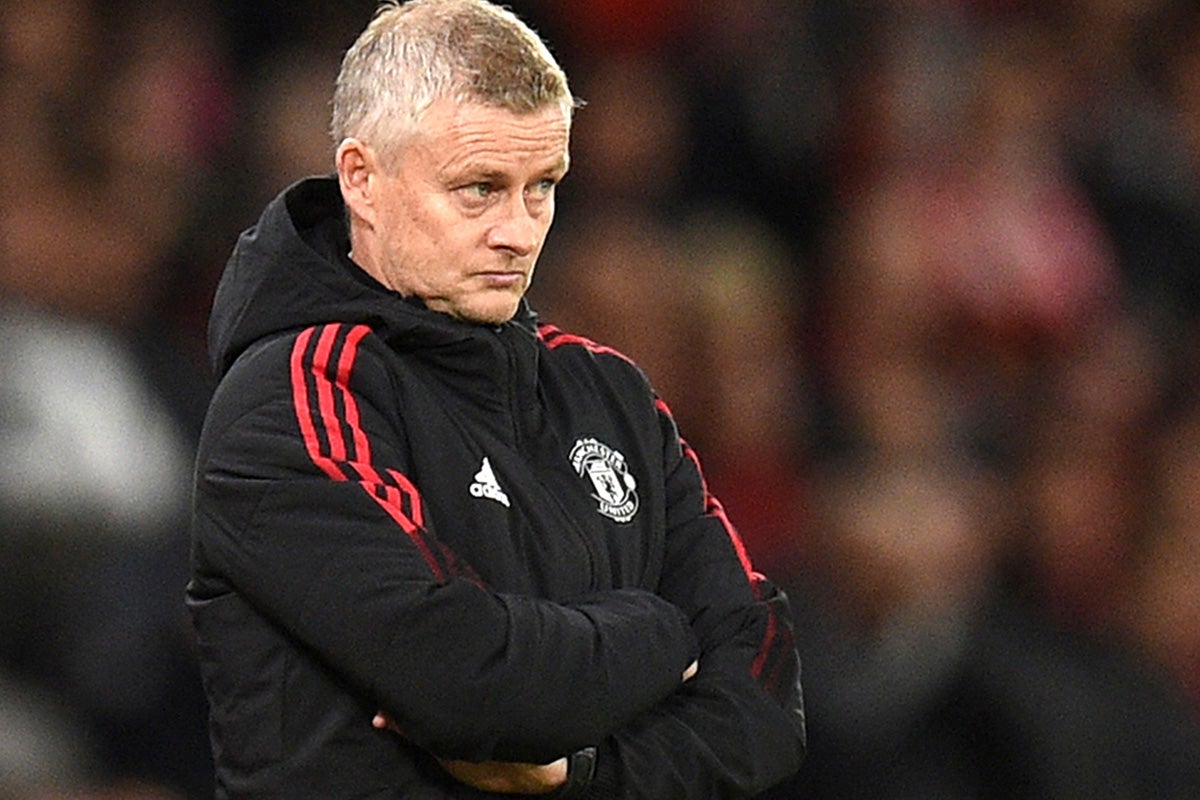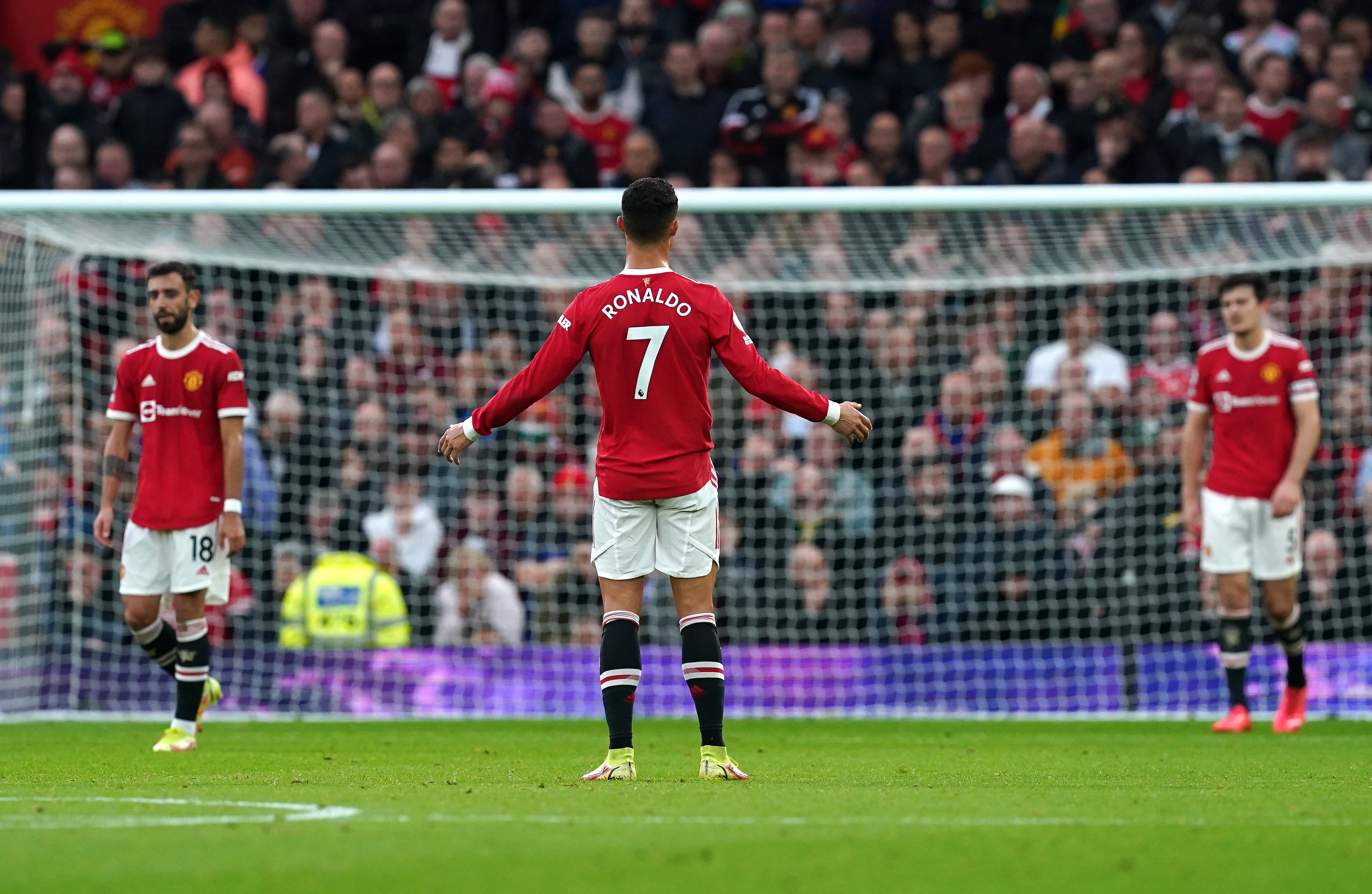What next for Manchester United and Ole Gunnar Solskjaer?
In the more swish rooms around Old Trafford, the widespread expectation was that Ole Gunnar Solskjaer would be kept on. The word at the club was there would be no movement.
That can quickly change – Jose Mourinho was sacked rather abruptly after defeat to Liverpool – but it already felt like the discussion had itself moved on after the game.
It was no longer about whether United should change manager, but whether Gary Neville would criticise the manager.
The whole picture was being blurred, which was a pretty remarkable situation given the starkness of a 5-0 defeat to your greatest rivals, and what amounted to one of the club’s worst ever results.
This after almost three years on the job when United are supposed to be on the cusp of properly challenging. Solskjaer himself spoke after the game that they are “so close”.
Close to what, exactly?
There were hugely worrying gaps between the players in the team, that were the inevitable development of a side without any co-ordinated press or attacking approach. It all gave in.
What was so concerning about this game was not just that it displayed the tactical difference between Solskjaer and a manager like Jurgen Klopp.
It was the difference of application within that, as if United had finally just dropped off. It was just so easy for Liverpool.
Everything they did was almost casual. It should have been a huge alarm.
The problem is that it feels like the picture is blurred around Solskjaer, too.
Manager Ole Gunnar Solskjaer of Manchester United looks on after a heavy defeat to Liverpool
There’s more to it than key officials like Ed Woodward have been convinced that he can be a transformative figure, and that critics will be proved wrong.
United have so overtly placed Solskjaer at the centre of a so-called “cultural reset”, that is supposed to be about positivity and a new mood.
As football repeatedly makes abundantly clear, though, the mood is only ever really dictated by results.
One reason United don’t want to sack Solskjaer is because he is seen as so central to this.
Replacing him would require another reset.
But that only illustrates another problem.
It is that the “cultural reset” isn’t that deep.
Mohamed Salah completes his hat-trick in the 5-0 win over Manchester United at Old Trafford
“You can tell what most clubs want to do, even Arsenal,” one well-placed source says. “You can’t really say that with United.”
Key decision-makers at the club willingly say they never wanted to go down the Manchester City or Liverpool route of having a defined style of coach, because that means you can’t be adaptable.
But it ultimately means it’s open season again if you ever go to change the manager.
That is what a culture is really about, after all. It’s defined principles that people can fit into. It goes way beyond mood, or appeals to heritage. It is much more specific than vague notions of identity or “a club way”.
Again, as has been said in these pages before, Jadon Sancho actually sums up much of this. Part of the reason he was so good at Borussia Dortmund was because his quality just fit into the structure. It could be seamless.
There’s none of that at United. It’s all much more open-ended.
A problem is that could actually further limit the club in terms of potential replacements.
Most managers now are primarily head coaches, more dependent on the right structure.
It is why it can simultaneously be true that Brendan Rodgers is one of the brightest in football but that United – were they to appoint him – wouldn’t see the best of him. They just aren’t built in the way Leicester are, where so much fits, if on a lower scale.
This gives rise to another point, that further complicates the discussion.
Solskjaer looks on after defeat to Liverpool
One constant argument in support of Solskjaer is that United need some kind of stability, and could do without another short-term appointment.
But there is at least a counter-argument that the opposite is true. United arguably need a short-term fix – and a manager who can come in and just win a trophy – to undercut the developing idea that the club is “unmanageable”. That is a genuine danger.
But there are still coaches who could come in and assert effect without the necessary structure. Antonio Conte is one.
He is such a pure and effective tactician that he went to an unbalanced Chelsea squad and quickly figured out a formation that fitted. He could do similar at United. And for all the comparisons with Jose Mourinho, his guiding football principle is a proactive game, which meant his teams have played exhilarating football. All of his recent sides have immediately kept succeeding too. They haven’t been left in “a mess”.
All that said, it would also be entirely reasonable if United didn’t want to have to put up with an explosive personality.
There are other options – but not as many as the last few years.
This has been another trend at United.
They have repeatedly missed out on the true elite managers due to both indecision and bad decision.
This is what undercuts the claim that “they tried world-class managers and neither worked”. It was clear that both Louis van Gaal and Mourinho were past their best in the club game and being usurped when they took over. The Portuguese had just come off a juncture season at Chelsea, where the scale of the collapse just couldn’t be written off.
United still opted for him rather than Mauricio Pochettino, just after Liverpool had got Jurgen Klopp and at the same time Chelsea had got Conte and Manchester City Pep Guardiola. All of those have either won a league or been in a Champions League final since.
The trajectory of all of Manchester United’s managers has meanwhile only been down. That tells you something else about the decision-making at the club.
A frustrated Cristiano Ronaldo sums up the feeling at United
There hasn’t been the football expertise to see who is on the upward curve in the game, where the sport is going.
The brutal reality right now is that it doesn’t take much football expertise at all to know Solskjaer isn’t a top-class coach, and is never going to be.
A grand irony, if a somewhat predictable one, has exposed that. The signing of superior players has only made Solskjaer look inferior.
Ronaldo is a case in point.
The forward does represent something of a challenge at this point in his career, in that a team needs to be structured in a certain way to accommodate him.
It’s just that Solskjaer only seems capable of envisaging one formation with Ronaldo. It is this 4-2-3-1 that was so obviously going to play into Liverpool’s feet – Paul Scholes and so many others predicted it – and yet he went with it anyway. Is it possible he doesn’t have the tactical vision to imagine anything else?
The fact that feels a fair question is damning in itself.
It’s just impossible not to think that, in this situation, without Ronaldo, Solskjaer might have reverted to a more reserved and counter-attacking formation that has served him well in this game in the past.
As it was, United just surrendered in so many senses, in what must genuinely go down as one of the worst ever Premier League defeats. They were so fortunate Liverpool eased off.
It could have been historically bad.
So, what next? It is possible Solskjaer arrests this. United were thrashed 6-1 by Tottenham Hotspur just over a year ago, and within a month were beating Paris Saint-Germain and RB Leipzig.
Even if similar happens here, though, that very cycle illustrates a problem. United are just going around and around.
It just isn’t where they should be given the expenditure, and the status of the club.
Source: Read Full Article




